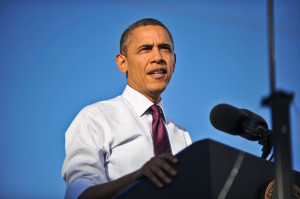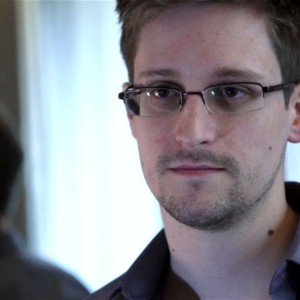
All you wanted to know about PRISM but were afraid to ask because someone might be watching (they probably are)
- Tim Batt
- 3
- Posted on

Much has been made in the last half week of an intensely invasive programme run by America’s National Security Agency (NSA) called PRISM.
PRISM is a project that started in 2007 and was only revealed in the last week by reporting in The Guardian and Washington Post.
According to the reports, the NSA has directly connected to the internal servers of nine key technology firms (including Microsoft, Facebook, Skype, Apple, AOL and Yahoo). That direct connection part is important, but more on that soon.
This PRISM system can, according to leaked internal top secret NSA documents, log all the email, video calls and instant messaging chat logs as well as monitor the live actions of users of services from these companies. Facebook chat. Gmail messages. Skype calls. Everything. In real time. PRISM started under the Bush administration and expanded vastly under Obama. It has been cited in 77,000 reports produced by the NSA. Of the NSA reports that the President receives, a very significant 1 in 7 are based on PRISM intelligence.

The man responsible for blowing the whistle on the programme is Edward Snowden, a 29 year old high school drop-out who curiously ascended to the ranks of NSA’s IT department despite his experience being limited to a few computer classes he took in community college. He started as a security guard and ended up being privy to the inner workings of some of the most highly classified programmes that the American Government operates. As someone who had an overview of the capabilities that agents in the NSA now possess, he was frightened. Snowden decided to blow the whistle knowing full well he could be facing criminal prosecution and may never return home. That was how important he thought getting information to the American public about these programmes was.
When the nine tech companies were asked for comment in the hours and days after, some curious things happened. Their responses emphatically denied ever knowing about a programme called PRISM and they also denied allowing the NSA “direct access” to their users’ data. Two little things about that assertion; First it completely contradicts what Glenn Greenwald, the Guardian writer who broke this story based on leaked documents and interviews with Snowden, has said and second, direct access is not necessary to gain access to the users’ data (though once again, direct access IS the assertion being made in the reporting).
The companies’ responses’ similarities also drew some tech pundits to suggest that this may be the result of a sort of ‘Ghost Protocol’ whereby if the programme was ever revealed, the companies had a set of actions to carry out including denying knowledge, severing server connections and issuing a prepared communications response to the public. While this may be true, there is little evidence at this point to support that theory.
But here’s what we do know – PRISM is real. It has been confirmed by the US Government itself in its response to this scandal. We know that Snowden has so far shown no signs of a personal or political agenda in bringing this information forward, which he has done at significant risk to himself and his career. We know that if the allegations being made at the moment are true, and right now it certainly appears they are, all of us who live online have entered an entirely new age of surrendering personal privacy to the US Government in exchange for ‘security’ against terrorists.
The response from the US Director of Intelligence to the scandal centred around the fact that the NSA are not trawling through people’s emails or listening to everyone’s calls, nor do they even possess the man-power to do so. This explanation completely misses the central issue in this scandal. People are not up in arms about what the NSA have done yet, people are scared by how much power the NSA appear to have to pry into every person’s life – foreign or domestic. It’s not just a vast invasion of privacy of the global online citizenry, it’s not just the potentially illegal action of the NSA intercepting and tracking communication by its own citizens, it’s the potential for political corruption. With such an incredibly powerful tool at the Government’s disposal, it seems only inevitable before it is used as a political weapon.
Nixon was taken down for wiretapping his political opponent, what will happen to the Government who oversaw a programme that gave itself the ability to wiretap every citizen in the name of terrorism prevention?
Coda 11 June 2017: We were contacted by Cloudwards who wrote the following piece with the most up to date info pertaining to the Snowden leaks, PRISM, et al; worth a read if you’re interested: https://www.cloudwards.net/prism-snowden-and-government-surveillance/


Surely ever since 9/11 it’s been a no-brainier that basic human rights in the US was over right? Google, Facebook, Twitter et al. should offer European based servers as an option since the EU is slightly less batshit crazy then Uncle Sam.
Thanks for this Tim – I have to admit I’ve been too lazy and scared and apathetic to read the news stories on this scandal, so thanks for the very succinct summary. I was living in the States as a librarian during the roll-out of the Patriot Act, and we were absolutely disgusted at the level of access the government had to a person’s library-related information, including exactly which books they borrowed!
And the defence for the PRISM program doesn’t make ANY sense whatsoever: we have to sacrifice freedom to get freedom. What a load of bull shit.
Tell me how many ””terrorists”” (can we even define that word??) have been thwarted by giving the NSA access to the Skype calls between my daughter and her grandparents 10,000 miles away? The only bomb Ruby is building is in her nappy!
The simplest explanation to me, rather than a huge conspiracy or ‘ghost protocol’ type shenanigans is that the Guardian and the Washington Post saw a potentially huge story and raced each other to get it out.
http://www.zdnet.com/the-real-story-in-the-nsa-scandal-is-the-collapse-of-journalism-7000016570/
Whatever the details, I don’t think the reality of the situation is particularly surprising. Which is not at all to say that america didn’t become a bit of a scary place post 9/11.